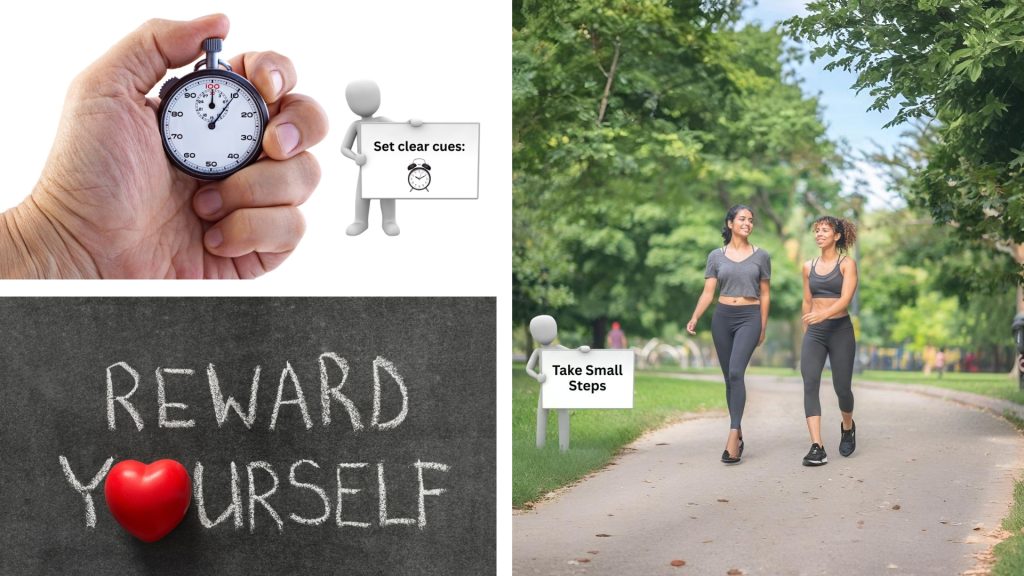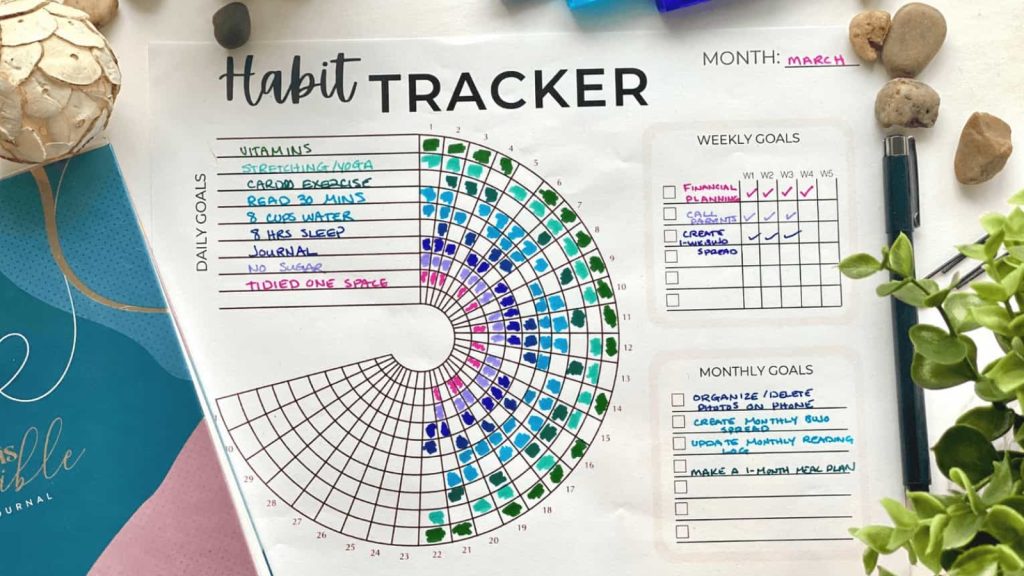Habits are regular actions or behaviours we repeat almost automatically. Over time, they become a natural part of our daily routine without needing much thought. Effective time management relies heavily on these habits, as good habits help us stay healthy, productive, and organised without feeling overwhelmed. On the other hand, bad habits can hold us back without us even realising it. That’s why building the right habits can make a big difference in the long run. Like waking up and making your bed without thinking, or reaching for your phone the moment you open your eyes. Maybe you check your phone the moment you wake up, or scroll through social media before bed. These small, repeated actions shape the rhythm of our day. This is the power of habits.
How Habits Are Formed
A habit usually follows a simple loop – first, something triggers it (that’s the cue), then you do the action (the routine), and finally, there’s something you get out of it (the reward). The more you repeat this loop, the more automatic the habit becomes. There’s a part of our brain called the basal ganglia that helps store habits. Once we repeat something enough, this part takes over and lets us do it without thinking much like driving on a familiar road. Our brain likes this because it saves energy and makes daily tasks easier to manage. This is a key part of how to manage time better and make productivity more effortless.
The 21-Day Myth vs. Reality

In terms of time management strategies, it’s about focusing on small, manageable actions rather than rushing to achieve results. Doing a small action every day matters more than doing it perfectly, and this principle applies to building habits and improving stress-free productivity.
Steps to Build Good Habits That Stick

- Take Small Steps: Start small and don’t stress about an hour-long workout right away. Just aim for a quick 5-minute walk to get the ball rolling and build the habit slowly. This is one of the time management tips that helps you avoid overwhelming yourself.
- Set clear cues: Set clear cues to remind yourself like going for the walk right after dinner or before breakfast. It helps make the habit feel more natural and part of your daily routine, contributing to daily planning for efficiency.
- Reward Yourself: Make it rewarding by celebrating those small wins, like how good you feel after a walk or treat yourself to something nice. It’ll keep you motivated to stick with it and improve your time management skills.
Breaking Bad Habits

- Replace, don’t erase: swap with better habits
Instead of trying to completely erase a bad habit, replace it with a better one. For example, if you tend to snack on junk food, try swapping it with a healthier snack like fruits or nuts. This way, you’re not just focusing on what to avoid, but on building a more positive habit instead. This approach can help with organizing your day effectively and eliminating distractions. - Identify triggers and avoid them
Every bad habit has a trigger like stress, boredom, or certain situations. Once you identify what triggers the habit, try to avoid or change those situations. If stress leads you to smoke, for instance, find a healthier way to cope, like deep breathing or taking a walk. Identifying triggers is key to stress-free productivity. - Be patient and kind to yourself
Breaking bad habits takes time, so be patient. Don’t beat yourself up if you slip up – just get back on track. Being kind to yourself during this process helps you stay motivated and avoid the frustration that can make you give up. This is an important part of maintaining work-life balance techniques as you work through personal changes.
Real Life Examples of Habit Formation
Simple success stories

Many people have successfully built habits like drinking more water every day. One simple tip is keeping a water bottle with you at all times, so it’s easy to take a sip throughout the day. Others have turned waking up early into a habit by gradually setting their alarm 10 minutes earlier each day. Small changes can make a big difference over time and support effective time management.
Tips that worked for others

One tip that has helped many is using habit trackers or apps to track progress. Seeing your consistency on a daily basis boosts motivation. Another trick is to tie a new habit to something you already do, like reading a chapter of a book after your morning coffee. These strategies make it easier to stick with your goals and improve time blocking methods for better organization.
Now You Can Shape Your Habits Wisely
Forming habits takes time, but the effort is definitely worth it in the long run. Remember, you’re not lazy, your brain just needs some guidance to build positive routines. Start today by making one small change, and you’ll see how it gradually becomes a part of your everyday life. With patience and consistency, you can create habits that make a big difference.







